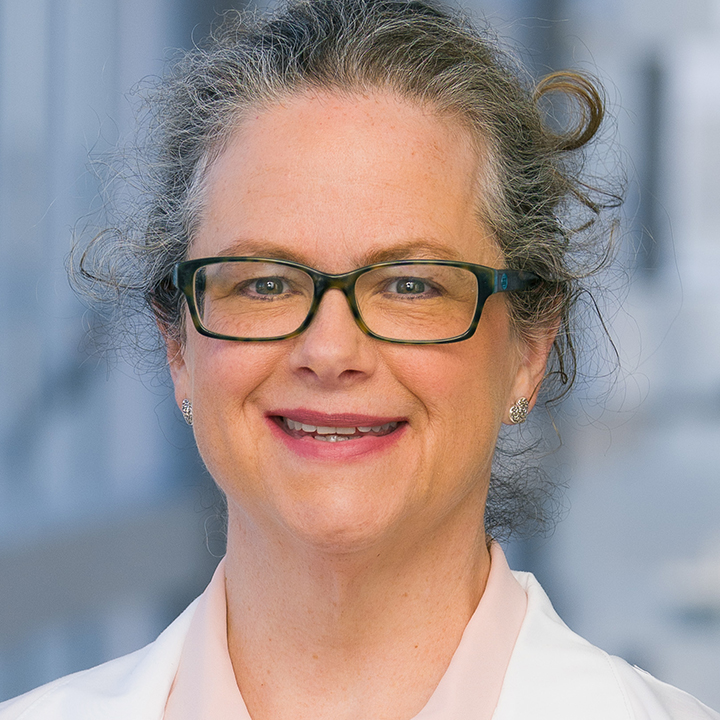Mary Elizabeth Paulk, M.D.
- Professor, Internal Medicine - Palliative Medicine
- Distinguished Professorship of Palliative Care, in Honor of Steven Leach, M.D.
- Lillian and Lewis Becker Fund for Palliative Care
- President’s Award for Diversity and Humanism in Clinical Care

“There is no pillow softer than a clear conscience.”
Contributions to STEMM
Dr. Paulk wears several hats at UT Southwestern. “Central to my career has been the practice of Palliative Medicine, which fundamentally means making life as easy as possible for patients and families living with serious illness by anticipating and addressing sources of distress, whether physical, social, psychological, or spiritual,” she said.
As an educator, Dr. Paulk “founded the palliative care programs at Parkland and UT Southwestern in 1999, and since then have been training students, residents, and fellows to provide the most dignified and patient-centered end-of-life care possible.” In her role as a researcher, she “focuses on understanding what patients in our safety-net hospital want from their physicians in terms of both medical care and spiritual support.”
Additionally, “my other primary role at UT Southwestern has been as an Associate Program Director in the Internal Medicine residency program,” Dr. Paulk said. “In this context, my primary role is to help oversee the recruiting process. We are deeply committed to bringing not only the best and brightest young residents to our program, but also to ensuring that every class is a rich, diverse group of individuals who share our commitment to providing outstanding care to each and every member of the diverse populations we serve and promoting social justice in our community.”
Early Influences
“When I was in first grade, I had a ‘Mr. Wizard’s’ book of scientific experiments, and I think I did every single one,” Dr. Paulk recounted of her first experience with science. “My favorite experiment involved a needle, some soap, and a pie tin full of water. I remember taking it to school to show everyone and feeling that it was better than a magic trick because I wasn't tricking anyone – it was magic that was real in the world.”
Throughout her childhood, Dr. Paulk cited her experiences outside of the classroom with fostering her love of science. “It was not my exposure to science or math at school that made me interested in science or medicine. It was the things I learned outside of school – playing outside, building dams in the creek, making pulleys to carry things up to a fort, trying to build rafts – basically playing with engineering that made me interested,” she said.
“Ultimately, science is fun, and there are lots of ways to play and have fun with it. If your only exposure is the classroom, you run a serious risk of having your joy extinguished!”
Overcoming Challenges
“I was strongly discouraged from going to medical school, particularly by my parents. They emphasized that it was hard work, that there would not be ‘much money,’ and that I would essentially be in a service industry. They also told me flat out that I was just not well-suited for it,” Dr. Paulk said. “For the first time in my life, I just decided they were wrong and went ahead with it. Once I had a letter of acceptance, they were willing to let me go ahead and make my own mistakes and were astonished when it seemed to go well.” Dr. Paulk used this experience as a lesson.
"I learned that I am the one who knows best what I can and cannot, should and should not do. Others can have input, but ultimately it is up to me.”
The UT Southwestern Difference
“What I love most about my job is the opportunity for authentic connection with patients – the chance to talk with them about things that really matter. At the end of the day, it is an extraordinary feeling to know that I have helped relieve someone's pain, helped them find meaning in their life or their suffering, helped a family in distress find a little bit of peace in a difficult situation, or been able to help a colleague or house officer navigate a challenging case,” Dr. Paulk said. In particular, “I am passionate about eliminating barriers to outstanding care for those most at risk of being disenfranchised by socioeconomic barriers to health care.”
Dr. Paulk sees her inclusion in the Celebrating Breakthroughs Together Project as an incredible honor. She cited “Women like Lynne Kirk, Helen Hobbs, and Pat Cook,” as “providing inspiration for me since the beginning of my career here.” In return, “I hope that in some small way I will be able to help others.”
View Academic Profile